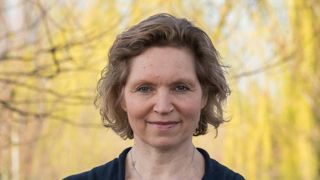
Frederike Praasterink MSc
Professor Future Food Systems
- F.Praasterink@has.nl
- F.Praasterink@has.nl

The Future Food Systems professorship is working on intervention strategies and new business models that accelerate the transition to sustainable food systems. In this way, we contribute to the impact on the Sustainable Development Goals (SDGs) of the United Nations, nationally and internationally.
The aim of the Future Food Systems professorship is to accelerate the transition to sustainable food systems. Making the system more sustainable is not sufficient: a transition is needed in the way we produce, value and consume food. The research group works on intervention strategies as well as new business models.
Food is an important part of our culture and well-being, but food is also related to global sustainability challenges needing urgent attention:
It was recently estimated that the social health, economic and environmental costs of the global food system are $12 trillion; 20% more than the market value of all food systems (Pharo et al, 2019). This alone clearly indicates that making the current food system more sustainable is not enough. Achieving the United Nations' Sustainable Development Goals requires a complete rethink about the way food is produced, valued and consumed.
The Future Food Systems professorship is based on three related pillars:
The Food Transition Coalition (Transitiecoalitie Voedsel) is a permanent partner. This network organisation has more than 200 members from the business community, knowledge institutions, social organisations and local, provincial and national government authorities. The mission is to ensure a transition to a sustainable food system; healthy people on a healthy planet.
Professor Frederike Praasterink is secretary of a National Science Agenda (NWA) Consortium called 'Transition to a sustainable food system’ (Transitie naar een duurzaam voedselsysteem), which involves more than 35 partners from all kinds of universities and parties in the field. This programme was launched in March 2021, and will run until 2025.
She also holds a number of social roles:
PJ Beers leads the project 'Knowledge for Earning Capacity: Cash to the Cycle', a collaboration between HAS Green Academy, Van Hall Larenstein, Inholland, Aeres, Hanze University of Applied Sciences Groningen and Hogeschool Windesheim. Commercial partners include: ZLTO, Rabobank, Flynth, ABAB and many others.
In addition, the resrearch group participates under PJ's leadership in the CropMix project, an NWA project of Wageningen University and numerous other research and commercial partners, aimed at researching and strengthening all kinds of mixed crops, such as strip cultivation, food forests and pixel farming.
PJ is president of the Green Protein Alliance, an association of plant-based protein producers and their partners that strives for a more plant-based diet.
In addition, PJ is a senior researcher at DRIFT for transition.
Reports, summaries and articles
View all reports, summaries and articles of projects from the professorship in Greeni
